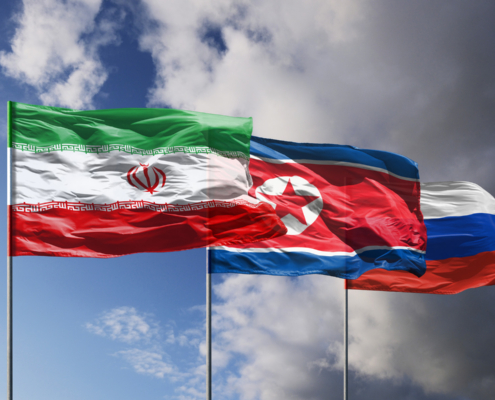
Interlocking Action
Transnational crime requires a coordinated response. Examine the characteristics of transnational crime, breakdowns in internal cooperation within financial institutions that resulted in enforcement action, and the actions Chief Compliance Officers must take to ensure an effective and coordinated response within their institution.

Walking the Sanctions Tightrope
In today’s fast-evolving regulatory landscape, sanctions compliance can feel like an uphill battle. This guide explores the key challenges compliance officers face—ranging from multi-jurisdictional rules to cryptocurrency complexities—and offers practical tips to stay ahead.

The New Counter-Illicit Finance Regime
/
0 Comments
The convergence of AML/CFT and sanctions regimes has led to a paradigm shift. These disciplines may now be viewed as overlapping parts of a broader global counter-illicit finance regime.

Examining Evasion
Explore three recent examples with Russia, Iran, and North Korea, which represent some of the most common methods illicit actors have embraced to evade sanctions. Understanding them is an important starting point for private sector firms in assessing and responding to their exposure.

Biden Takes Final Shot at Russia’s Energy
The Biden administration on January 10, 2025, imposed the most severe sanctions on Russia’s energy sector since the start of Russia’s full-scale invasion of Ukraine. What should financial institutions and other firms know about these new designations, and how can they mitigate their risks?

2024’s Top 10 Major Developments
Explore the highlights from our recent webinar including an overview of the current illicit finance landscape, major events in 2024 as well as noted possible future developments as the global illicit finance regime grows and evolves.

Syria Sanctions Relief
The U.S. Treasury has issued a Syria General License to provide gradual sanctions relief for the Syrian people after the regime of Bashar al-Assad was toppled in December 2024. What does this sanctions relief mean to financial institutions and other firms hoping to transact in the country?

Sanctions in 2024: Global Pressure Points in the UN, U.S., EU, and UK
In 2024, the UN, U.S., EU, and UK ramped up sanctions targeting Russia, Iran, and conflict zones, focusing on critical sectors like energy, defense, and technology. In this article, we explore these coordinated efforts aimed at weakening adversarial regimes while navigating complex compliance and humanitarian challenges.

Toward a Financial Integrity Risk Management Program
This article explores the commonalities between AML, sanctions compliance, ABC, fraud risk management, and export control compliance programs and recommends that organizations consider using a holistic financial integrity risk management and compliance framework.

The Sanctions Evasion Threat
It’s more important than ever for compliance officers to understand and recognize sanctions evasion typologies. In this article, we explore six of the most common techniques illicit actors use to evade sanctions.
